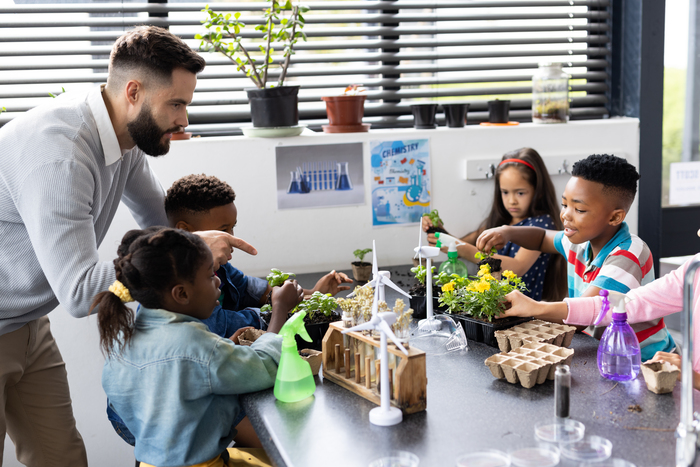
Sustainable thinking in schools: Teaching environmental responsibility in daily life
Environmental concerns such as climate change, air and water pollution, deforestation, and the overuse of non-renewable resources are no longer distant threats—they are present-day realities. These challenges demand a fundamental shift in how we live, consume, and engage with the planet. A sustainable lifestyle, rooted in conscious thinking and responsible choices, is no longer a luxury; it is essential.
Sustainability is not merely about protecting forests or reducing carbon emissions. It begins with everyday decisions—carrying a reusable bottle, choosing public transport, switching off unnecessary lights, or avoiding plastic packaging. These small, consistent actions contribute to a broader global effort to protect and preserve the environment.
Cultivating this mindset during childhood is vital. Children are naturally observant and curious. When guided to understand how their choices affect the environment, they begin to form lifelong habits and values. Instilling environmental responsibility in children creates a ripple effect—not only shaping their behaviour but also influencing their families and wider communities.
Schools are uniquely placed to foster this awareness and embed sustainability into daily learning. Beyond academic subjects, schools can be spaces where environmental values are modelled, practised, and celebrated. When students are encouraged to explore real-world ecological issues and participate in practical solutions, they gain the confidence to become active contributors to a more sustainable world.
Why environmental responsibility matters
Teaching environmental responsibility from a young age helps children grow into mindful, empathetic, and globally aware individuals. It equips them with the knowledge and tools to understand complex global issues and empowers them to take meaningful action.
Students who engage in sustainable practices learn to appreciate nature, develop empathy for other living beings, and make informed decisions about the resources they consume. This form of education not only shapes responsible individuals but also helps build healthier communities and a more resilient planet.
Embedding sustainability in school life
Sustainability can be integrated across various areas of the curriculum. In science lessons, students can explore topics such as renewable energy, ecosystems, and pollution. In language and art, they can express environmental concerns through storytelling, debates, posters, or campaigns. Mathematics classes can include practical activities like tracking the school’s energy usage or measuring waste reduction.
Daily routines also offer opportunities to reinforce sustainable habits. Students can be encouraged to use reusable lunch containers and water bottles, minimise single-use plastic, and participate in waste segregation. Composting food waste, conserving water, and switching off lights and appliances when not in use are simple yet effective ways to build environmental responsibility. Outdoor learning initiatives such as school gardens, tree planting drives, and nature walks provide hands-on opportunities for students to connect with the environment and understand the importance of protecting it. These activities offer rich, memorable learning experiences that go well beyond textbooks.
Encouraging student leadership
One of the most effective ways to instill environmental responsibility is to empower students to lead. Creating eco-clubs or green teams enables them to take ownership of sustainability projects, develop leadership qualities, and motivate their peers.
Student-led initiatives such as campus clean-up drives, zero-waste events, or Earth Day celebrations can make a lasting impression. These experiences help students move from awareness to action, showing them that even small efforts can bring about meaningful change.
Extending sustainability to families and communities
For sustainable habits to take root, the message must go beyond the school gates. Schools can engage parents and communities through awareness campaigns, eco-friendly events, and challenges that promote responsible choices at home.
Encouraging practices such as kitchen gardening, composting, plastic-free festivities, and energy conservation at home helps students live out the values they learn at school. When families participate, environmental responsibility becomes a shared commitment.
 (1).png)